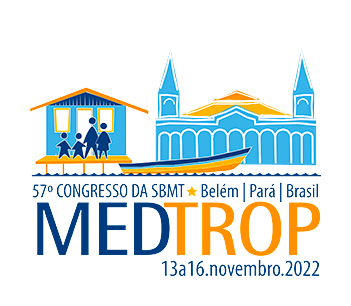Dados do Trabalho
Título
Harmonizing multi-scale spatiotemporal climate and health data in Brazil
Objetivo(s)
Extreme climatic events, environmental degradation, and socio-economic inequalities exacerbate the risk of infectious disease epidemics. However, we lack the evidence-base to understand and predict the impacts of extreme events and landscape changes on disease risk, leaving communities vulnerable to increasing health threats. The HARMONIZE project convenes a transdisciplinary community of stakeholders, software engineers, and data scientists to develop cost-effective and reproducible digital tools for stakeholders in climate change hotspots in Latin America & the Caribbean, including cities, small islands, highlands, and the Amazon rainforest.
Material e Métodos
We harmonize existing multi-source climate, environmental (e.g., satellite images, climate reanalysis and forecasts), socio-economic, and health data, and newly collected longitudinal ground-truth data using drone technology and weather sensors, to calibrate and downscale coarser-resolution Earth Observation, climate reanalysis, and forecast datasets in areas most relevant for disease transmission. We then integrate this data with socio-economic and health data in an automated workflow packaged in the R programming ecosystem for users in bespoke hotspot-specific toolkits.
Resultados e Conclusão
Our project expects to (1) build capacity through co-production and training activities to ensure digital infrastructure and toolkits meet the needs of the community; (2) identify existing environment, climate, and health digital infrastructure, collect new ground truth (drone and weather sensor) data, and produce classification and downscaling algorithms to enhance the resolution and quality of global Earth Observation, climate reanalysis, and forecast data for health impact modeling; (3) link, integrate, and harmonize Earth Observation, climate reanalysis and forecast data with disease surveillance data via an automated workflow, and (4) test whether digital infrastructure and toolkits are fit for purpose and will have a lasting impact, to help protect communities from the harmful impacts of climate change.
The HARMONIZE digital toolkits will allow local researchers and users, including national disease control programs, to link, interrogate, and use innovative spatiotemporal datastreams, to understand the links between environmental change and infectious disease risk in their local context, and to build robust early warning and response systems in low-resource settings.
Palavras-chave
climate change, infectious diseases, digital tools, data harmonization
Área
Eixo 02 | Tecnologia e Inovação em saúde
Categoria
NÃO desejo concorrer ao Prêmio Jovem Pesquisador
Autores
Raquel Martins Lana, Christóvam Barcellos, Cláudia Torres Codeço, Antonio Miguel Vieira Monteiro, Maria Isabel Sobral Escada, Gabriel Carrasco-Escobar, Mauricio Santos-Vega, Miriam Matos, Anna Stewart-Ibarra, Rachel Lowe
